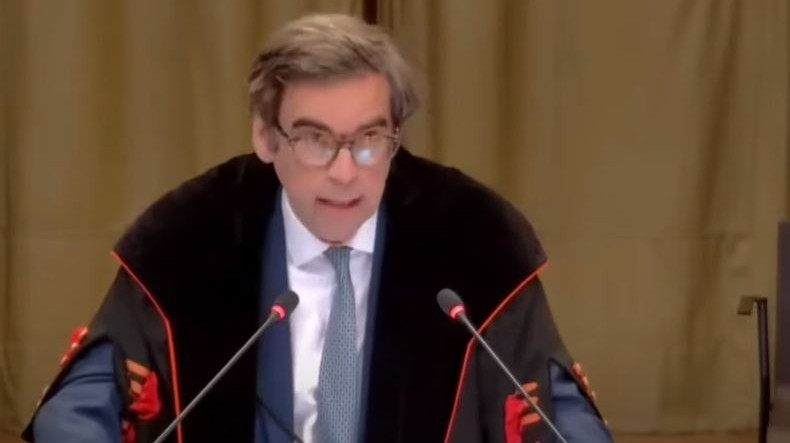
Pierre d'Argent: What Aliyev calls its 'patriotic war' resulted in ethnic cleansing of Nagorno-Karabakh
International law professor Pierre d'Argent representing Armenian on Tuesday delivered remarks at public hearings in the case of Armenia v. Azerbaijan opened at the UN International Court of Justice (ICJ) in The Hague. He responded to the preliminary objections raised by Azerbaijan.
“Azerbaijan's second preliminary objection seeks to exclude from the debate on the merits only certain allegations of violation of the Convention made by Armenia, namely allegations of arbitrary detentions of ethnic Armenians, allegations of enforced disappearances of ethnic Armenians, lastly, Armenia's claims relating to various acts of violence committed against ethnic Armenians,” d'Argent said.
“As you know, Azerbaijan's position has apparently changed in the course of the proceedings. The question is, however, whether it has really evolved, as it is difficult to know what has changed.
“The distinctions Azerbaijan is making are irrelevant and meaningless under the Convention, and all the more so because there is no doubt that the conflict between Azerbaijan and the ethnic Armenians when they lived in Nagorno-Karabakh had very marked ethnic origins and dimensions. Azerbaijan yesterday acknowledged that the conflict before the Court is an "ethnic conflict". Thus, this conflict is not an ordinary inter-state war, contrary to what, in a perfectly contradictory and decontextualised manner, Azerbaijan is trying to convince you by claiming that within this conflict there are particularly cruel and shocking acts of violence which have nothing to do with the ethnic origin of their victims.
This conflict is an ethnic conflict because for three decades, under the pretext of territorial integrity, Azerbaijan refused to accept the self-determination of the Armenians living on their ancestral lands in Nagorno-Karabakh. This conflict was-and still is-ethnically motivated and discriminatory, just as Azerbaijan's decision to put an end to this self-determination through its military operations in 2020 and, ultimately, in September 2023, was ethnically motivated and discriminatory. What Azerbaijan, through the voice of its President, calls its "war of liberation", or its "patriotic war", involved numerous discriminatory violations of the fundamental rights of ethnic Armenians, including when they took part in the hostilities. Moreover, this war resulted in the complete ethnic cleansing of Nagorno-Karabakh in defiance of the court's orders, which were intended to protect plausible Convention rights that were under serious threat. According to its own national narrative, Azerbaijan thus "liberated" itself by waging war at the end of 2020, and then - after a complete ceasefire - by pursuing its objectives through the gradual strangulation of Nagorno-Karabakh, right up to the final coup de force in September 2023 by which the ethnic Armenian inhabitants of Nagorno-Karabakh were driven out. Thus, for Azerbaijan, its "liberation" involved the rejection of any autonomy for ethnic Armenians and, ultimately, their forced exclusion from their ancestral lands, which is consolidated by the denial, destruction or alteration of any trace of the centuries-old Armenian presence in this territory. This, ladies and gentlemen of the court, is the objective and the fruit of Azerbaijan's "patriotic war": a homeland without ethnic Armenians," the law professor remarked.